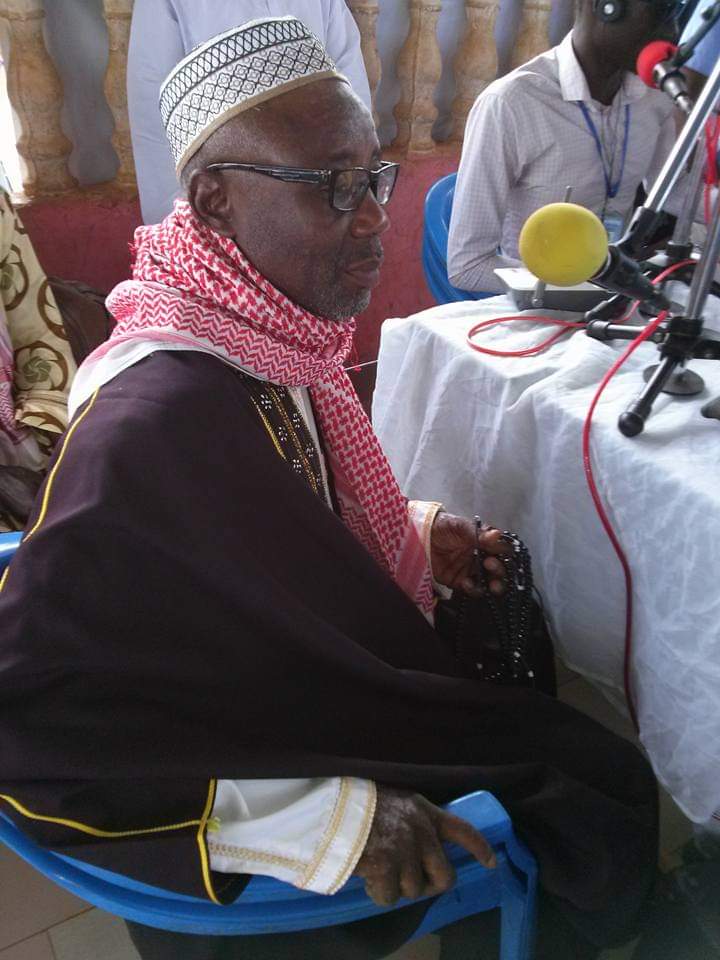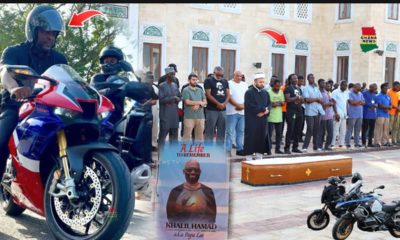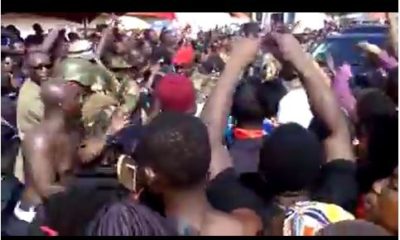GENERAL NEWS
EDUCATIVE: Islam and quick burial – Abdul-Samed Mohammed

In the wake of waging debate currently ongoing in Ghana as to whether facilitating the establishment of morgues in line with Islamic customs and practices are necessary.
As a Muslim in the midst of that seeming impasse I have resolved to research and share my findings الحمد لله _(All praise to Allah)_ on the topic in line with Islamic culture and tradition. My research is purely based on Islamic jurisprudence and not a single one of it is my personal view.
RESPECT FOR THE DEAD:
Respect for dead bodies manifests itself in diverse ways in different cultures around the world.
In Islamic law and Muslim cultures, burying the dead in the ground is the correct way to respect dead bodies.
Cremation is prohibited under Islamic law because, unlike in some cultures, it is considered a violation of the dignity of the human body.
QUICK BURIAL:
Based on reports attributed to Prophet Muhammed (PBUH) it is mustaḥab (or preferred)—i.e., not farḍ/wājib (compulsory)—to bury the dead bodies quickly.
EXCEPTIONS TO QUICK BURIAL:
The reports, however, do not give specific indications on how quickly burial should be undertaken. In some particular cases—like that of al-maṭ‘ūn (a plague-ridden person), al-maflūj (a hemiplegic person) and al-masbūt (a comatose person)—certain jurists advocate that it is preferred for Muslims to wait for yaūm wa laylah (a day and a night) until the death of such persons is confirmed.
The reason for waiting in these three cases is simply because there is a possibility that the individuals in question are not yet dead —they could be in a coma. Therefore, the jurists preferred that the burial should be delayed until death is confirmed.
Another exception to quick burial is if there is a suspicion that death is due to criminal action. In that case, burial is to be postponed until the body is examined.
Finally, a few jurists consider that another reason to postpone the burial of a dead body, unless it would mean the body would decay, is to wait for the arrival of the deceased’s relatives.
These discussions on the time frame for burial do not change if the dead body is unclaimed or unidentified. In those cases, the same rules just discussed for respecting the dead apply.
The humanitarian concern of respecting dead bodies prompts Muslims to quickly bury unclaimed or unidentified bodies.
Apart from these Islamic legal deliberations, other factors play a major role in why different cultures and traditions may have a tendency to bury the dead quickly.
One main concern is that relatives and neighbours might want to prevent the body from emitting an odor. This can particularly be true in countries where temperatures are high and there are insufficient means to refrigerate the dead bodies, where electricity blackouts occur frequently, or in remote desert villages that lack electricity completely.
Another reason for quick burial could be that the extended family and neighbours want to alleviate the pain that family members and their loved ones might suffer. Burying the dead body quickly can reduce fear and anxiety that the deceased’s body might decay and give off the odour of death. In both situations, quick burial is motivated by the desire to respect the dead bodies.
Regardless of the reason, quick burial of the dead can, in some cases, hinder the work of forensic specialists. Forensic specialists need sufficient time to establish the identities of the dead bodies. This is especially true in cases of armed conflicts and other situations of violence and natural disasters. Therefore, for forensic specialists to be able to carry out their job, it is necessary to provide refrigerators to keep dead bodies cool.
It is also necessary to engage with community and religious leaders and local authorities in order to convince the public and the relatives of the dead that forensic specialists need sufficient time to examine the bodies. Otherwise, families of the dead risk the pain of being unable to identify their loved ones and unable to visit their graves.
Story: Thepressradio.com/Jay Promzy
-

 Lifestyle2 months ago
Lifestyle2 months agoRoad Safety Authority narrates how buttocks causes road accident
-

 GENERAL NEWS2 months ago
GENERAL NEWS2 months agoWhy 15 police officers stormed Owusu Bempah’s church – Kumchacha narrates
-

 GENERAL NEWS2 months ago
GENERAL NEWS2 months agoWatch how Ibrahim Mahama rode Honda superbike to pay last respects to late friend
-

 GENERAL NEWS2 months ago
GENERAL NEWS2 months agoHow Offinso residents storm destooled queen mother’s house, demand for new chief
-

 South Africa News2 months ago
South Africa News2 months agoWoman thrown out of a speeding taxi while on her way to work
-

 GENERAL NEWS1 month ago
GENERAL NEWS1 month agoDeadly clash between youth and navy personnel results in two deaths at Tema Manhean
-

 SHOWBIZ KONKONSAH1 month ago
SHOWBIZ KONKONSAH1 month agoJunior Pope’s Death: Video of John Dumelo refusing to join canoe for movie shoot over safety concerns resurfaces
-

 News Africa2 months ago
News Africa2 months ago‘Satanically dubious’ – SCOAN releases statement on BBC’s report about TB Joshua, church





